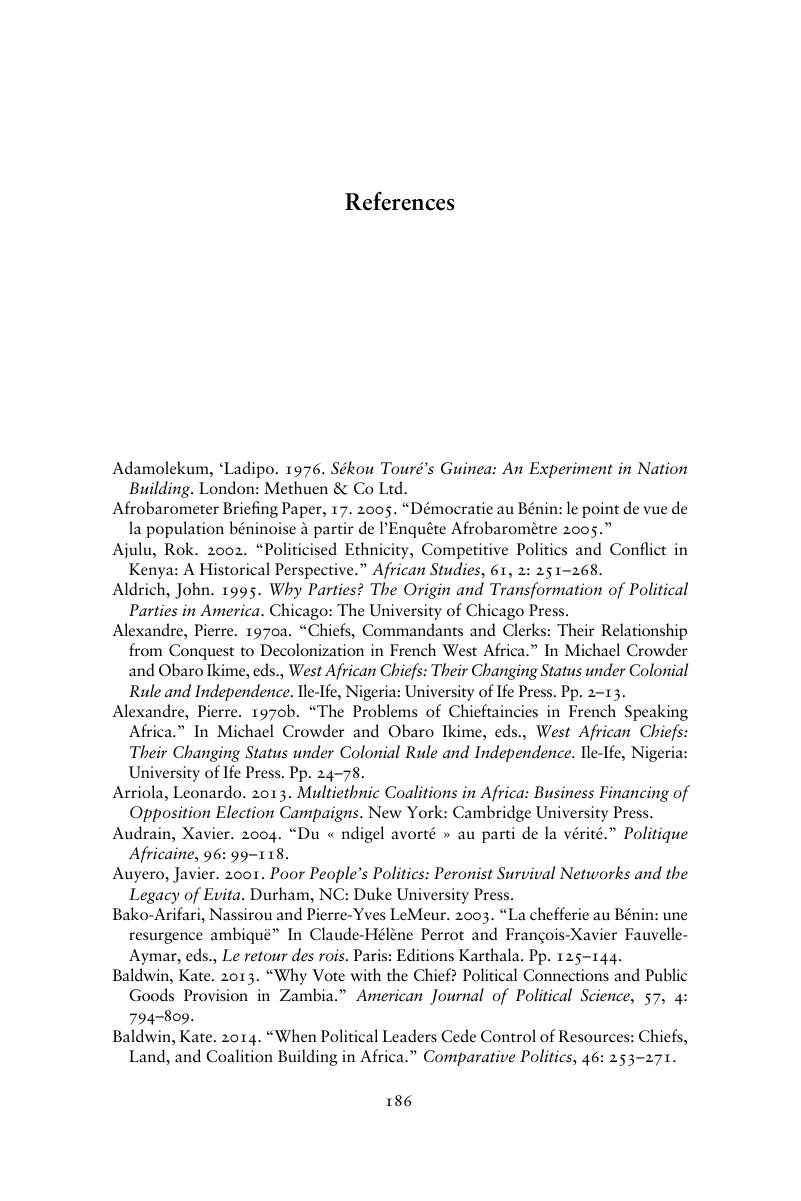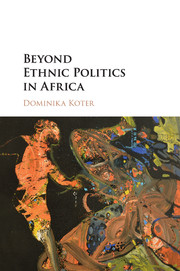Book contents
- Beyond Ethnic Politics in Africa
- Beyond Ethnic Politics in Africa
- Copyright page
- Dedication
- Contents
- Figures
- Maps
- Tables
- Book part
- Glossary
- 1 The Challenge of Winning Votes and Ethnic Politics in Africa
- 2 A Theory of Social Ties and Electoral Politics
- 3 Social Structure and Its Origins
- 4 Mobilization Strategies and Electoral Outcomes in Senegal and Benin
- 5 Intermediaries in Urban and Rural Settings
- 6 Social Structure and Ethnic Politics in Africa and Beyond
- 7 Conclusion
- Book part
- References
- Index
- References
References
Published online by Cambridge University Press: 06 October 2016
- Beyond Ethnic Politics in Africa
- Beyond Ethnic Politics in Africa
- Copyright page
- Dedication
- Contents
- Figures
- Maps
- Tables
- Book part
- Glossary
- 1 The Challenge of Winning Votes and Ethnic Politics in Africa
- 2 A Theory of Social Ties and Electoral Politics
- 3 Social Structure and Its Origins
- 4 Mobilization Strategies and Electoral Outcomes in Senegal and Benin
- 5 Intermediaries in Urban and Rural Settings
- 6 Social Structure and Ethnic Politics in Africa and Beyond
- 7 Conclusion
- Book part
- References
- Index
- References
Summary

- Type
- Chapter
- Information
- Beyond Ethnic Politics in Africa , pp. 186 - 198Publisher: Cambridge University PressPrint publication year: 2016



